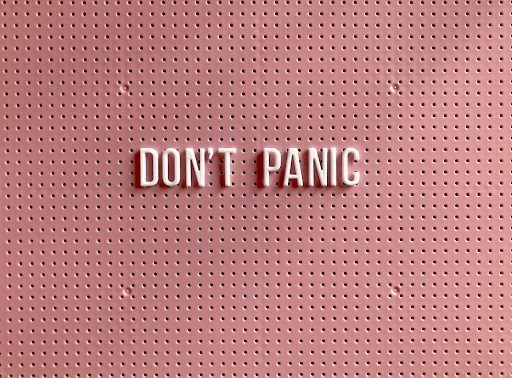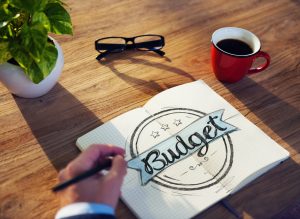
Unfortunately, facing debts has become a natural and almost unavoidable event in the modern way of life. Regardless of your level of attention and dedication to financial stability, debts are more frequent nowadays due to the increase in the costs of living. From buying a house to pursuing academic education, an individual needs to take loans at an early age. Of course, you need to be mindful of your financial choices. Yet, student loans, car loans, and mortgages are the most common debts for Generation X, Millennials, and Generation Z.
As a result, it isn’t uncommon for individuals to oversee a debt problem. Indeed, in a world where most people rely on loans and credit cards, debts can seem normal and expected. So, it’s important to recognize motivating incentives to get yourself out of debt. Aside from keeping creditors at bay, paying off your debts can put you in a better position to achieve your long-term financial goals. Additionally, debts can also drive debilitating health problems such as stress and cardiovascular issues. Yet when incentives are not the issue, you need to identify what’s keeping you from paying off your debts.
You don’t know the many legal solutions
When you struggle with repayments, you may receive legal notices from your creditors threatening with a variety of consequences, including foreclosure for mortgage debt or eviction for tenants. The reality of a legal notice is nerve-racking. However, debtors should not let their anxiety get the best of them.
There are supportive legal strategies that can help manage financial issues, as explained by money problem expert Leinart Law Firm. A debtor could consider filing for bankruptcy to regain financial stability. Contrary to common belief, bankruptcy may not cancel all your debts. Some debts, such as child support, tax liens, and alimony, are not eligible for discharge. Additionally, if your debts are linked to malicious harm to an individual or property, the bankruptcy process will not be able to eliminate them. It is worth mentioning that depending on the state you live in, you may lose your assets, including your home, through a bankruptcy filing.
Similarly, you can seek guidance for a consolidation loan, enabling you to combine all your debt repayments into one. The process can help make some financial room by presenting a low-interest rate for repayment. Unfortunately, consolidation loans are only considered a valuable option for individuals with a good credit score — an unlikely event if you experience debt problems.
Your income has not changed
The pandemic has encouraged individuals to seek financial solutions to secure access to essential services and goods. Personal loans, maxed-up credit cards, and other borrowing options have driven the household debt through the roof. Unfortunately, it can be difficult to budget for repayment for households that already faced high debts before the pandemic. Indeed, the pre-pandemic income already encouraged debt creation. It is unlikely they would be able to tackle the post-pandemic debt, even if the household income were to come back to the pre-March 2020 level.
To handle the increasing debt, the household needs to increase the available money. Thankfully, we owe radical digital transformations to the pandemic. Remote working is the number one option for professionals to seek a new employment opportunity. With large and small companies seeking talent all over the country, home-based employees have a vast opportunity of choice to boost their monthly pay.
Alternatively, side hustle ventures have become more popular as an income assistance strategy. Building a secondary source of income can help keep debt under control over time.
The pandemic has increased your debt level
As mentioned above, the pandemic has affected the household budget dramatically. According to the Federal Reserve Bank Of New York, credit card spending caused U.S. household debt to rise by $313 billion as measured in the second quarter of 2021.
For comparison, American consumers recorded nearly $15 trillion in debt by June 2021, over $812 billion more than the debt they accumulated by the end of 2019. The coronavirus pandemic accounts for unprecedented debt levels for American households, affecting the most vulnerable as the low-income households hold over 50% of the debts. Top earners, especially the top 1% of households, have also faced unexpected financial issues, carving out a large portion of the U.S. debt.
The financial burden is growing out of control because nobody was prepared for the impact of a global pandemic. Unfortunately, American households need to be patient to learn how to manage the new debt.
You struggle to establish debt priority
Paying one creditor off may be stressful, but it appears manageable. However, it’s hard to know where to start when you run multiple debts with many creditors. Every creditor and every borrower have different requirements. So, there is no one way to pay off the debts. Defining your priorities will depend on different factors based on your unique situation.
You might want to identify your debt by type. Secured debts have collateral backing, which the lender can repossess if you fall behind your payment, such as your car for a car loan. Unsecured debts may not have collateral, but they will cause considerable damage to your credit score if they are not addressed in time. Paying off secured debts will protect your collateral, which can be crucial to your lifestyle and income.
You can also categorize debts by interest rate. This can encourage you to use the debt avalanche method to tackle high-interest debts first. The process can save you enough money so you can apply the saving to the next higher interest debt, and so on. Another strategy is called the debt snowball method. It focuses on the smallest debt first, while making minimum payments toward other balances, so you can free up cash to focus on the next debt.
Finally, using emotional and financial stress as a trigger, you can tackle debt in order of anxiety or guilt level. For example, you may choose to pay back a friend when you have borrowed money.
Your responsibilities have changed since the start of the pandemic
The pandemic has not seen the expected baby boom. On the contrary, experts talk about a baby bust as many families have chosen to delay having children. However, American households have turned to pets for companionship during the pandemic. According to an ASPCA survey, 23 million U.S. households have adopted a pet during the COVID-19 crisis. Dogs and cats are all-time favorite companions, bringing joy and excitement to the family.
However, the basic costs of owning a cat or a dog can rack up to almost $10,000 per year, including veterinary care, training classes, and specialist resources, petsitters, food, and accessories. When the average individual faces debt of up to $54,000, it’s fair to say that owning a pet can make it difficult to budget for repayment. In other words, your situation demands a higher budget, but your income has not changed accordingly.
You don’t know how to budget for the post-pandemic economy

Even households familiar with budgeting best practices find the post-pandemic situation confusing. Many Americans rely on best practices learned from their parents to prepare the household budget. However, the financial plans prepared in 2019 do not fit the current situation anymore. So, it becomes essential to reevaluate your plan and create a new vision for your post-pandemic life. This can include lifestyle changes encouraged by the pandemic, such as home office work, relocation to the countryside, etc.
Households are likely to have less play money than before March 2020. Therefore, it becomes crucial to reconsider unnecessary spending.
You’ve been hoping for a quick win with terrible consequences
The pandemic saw a rise in popularity for daily trading. Amateur day traders have been seeking a big win for entertainment and profits. Unfortunately, while trading might appear like a great get-out-debt solution, it could land American households in the red. Day trading is a source of joy for unemployed or home-based employees struggling with loneliness and boredom. Unfortunately, trading without expertise or market knowledge can have devastating consequences.
You’re worried about the “next” pandemic
The current pandemic is not over. Yet, households are already worried about the next crisis. Indeed, as president Biden declared victory against COVID SARS-CoV-2 in spring 2021, the models did not predict the arrival of the Delta and now Omicron variants. Each pandemic victory drove the next pandemic wave as the country was left unprepared for new threats.
As a result, more and more households are considering safety plans for the next pandemic. They are stocking ahead and investing in financial schemes to protect their families. Yet, pandemic planning makes it impossible to recover from the current pandemic hardships.
It’s not your debt
Can you trust your loved one with money? Many American couples have discovered that they can’t. As some describe it, financial infidelity can accumulate substantial amounts of debt.
A wife discovered her husband had borrowed against their home and accumulated over $250,000 in credit card debt after spending huge chunks of the family savings. She divorced him, leaving the debt to be his responsibility. However, she had to start again from fresh with no savings.
The debt can become yours for couples who choose to stay together, even though you have no control over it.
Paying off your debt is easier said than done. Motivation is rarely an issue when it comes to debts. Money management, lack of income, and lack of control over the situation can be serious obstacles.